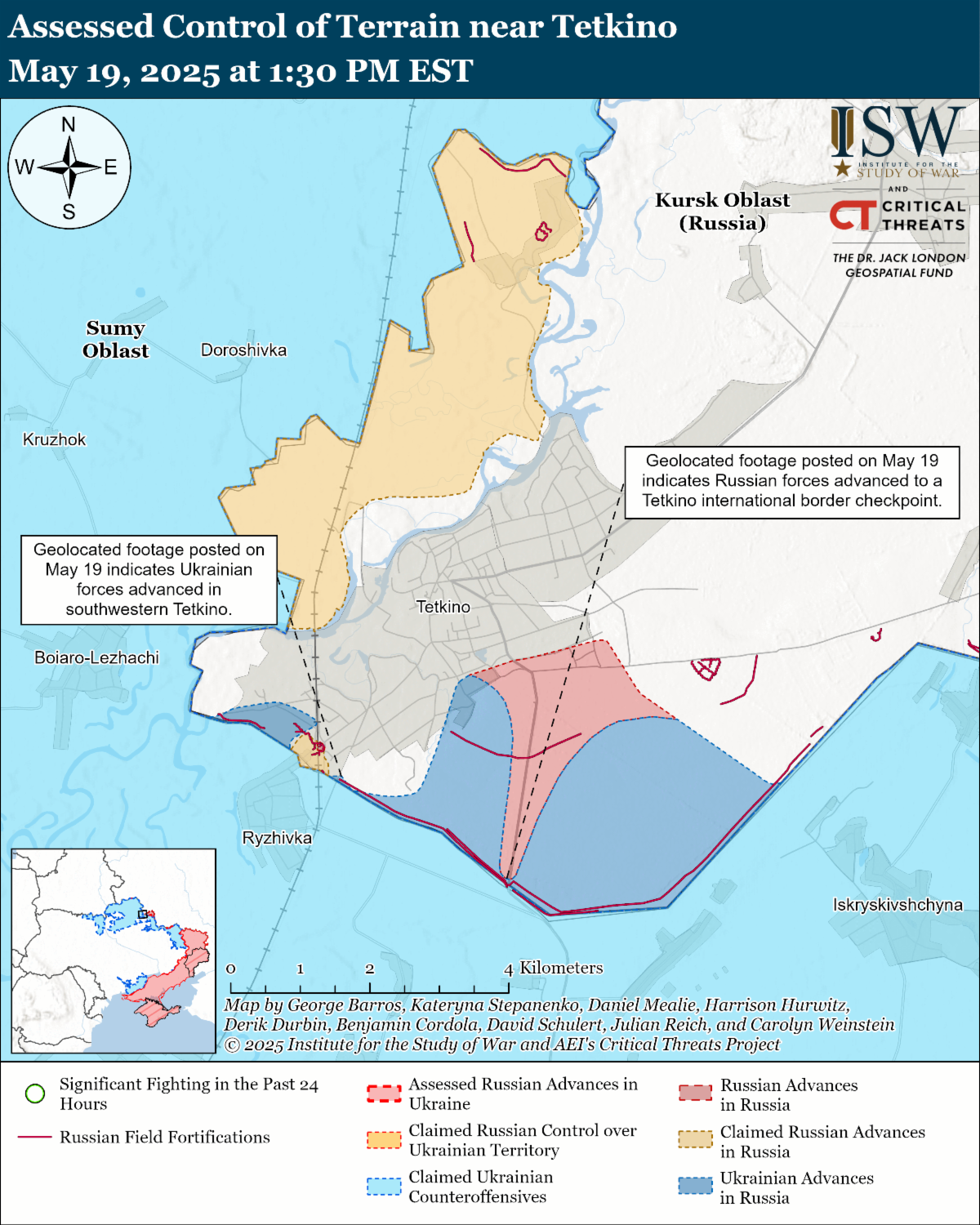US President Donald Trump and Russian President Vladimir Putin held a phone call on May 19 to discuss ceasefire and peace negotiations regarding Russia's war in Ukraine. Trump stated that he and Putin agreed that Russia and Ukraine will immediately begin bilateral negotiations about both a ceasefire and a peace agreement. Trump also said that he called Ukrainian President Volodymyr Zelensky, French President Emmanuel Macron, Italian Prime Minister Giorgia Meloni, German Chancellor Friedrich Merz, Finnish President Alexander Stubb, and European Commission President Ursula von der Leyen after his conversation with Putin and informed them that bilateral negotiations will begin immediately. Trump stated that the Vatican is "very interested in hosting the negotiations." Trump also expressed interest in reviving US–Russian trade after Ukraine and Russia agree to a peace deal and said that Ukraine could also benefit from trade during the reconstruction process. Putin spoke to journalists following the call on May 19 and stated that he and Trump agreed that Russia would present Ukraine with a "memorandum" detailing conditions and timing for a future peace treaty as the two countries move toward conducting bilateral negotiations. Putin also stated that Russia’s "main" concern is the elimination of the war’s "root causes," reiterating a long-standing Kremlin narrative calling for the replacement of the current Ukrainian government with a Russian proxy government and Ukraine's commitment to neutrality. Russian Presidential Aide Yuriy Ushakov told journalists on May 19 that Trump and Putin also discussed a possible nine-for-nine US–Russian prisoner exchange.
Zelensky stated that he spoke with Trump before Trump's call with Putin and spoke with Trump, Macron, Meloni, Merz, Stubb, and von der Leyen following the Trump–Putin call. Zelensky reaffirmed Ukraine's readiness for a full unconditional ceasefire as Trump has previously proposed. Zelensky stated that Ukraine is ready for direct negotiations with Russia "in any format" and offered Turkey, the Vatican, or Switzerland as possible venues for talks. Zelensky called for the negotiation process to involve both American and European representatives "at the appropriate level." Russia must break its pattern of protracting negotiations and failing to offer any meaningful concessions to Ukraine in order for legitimate and good-faith negotiations to lead to a lasting and sustainable end to its war against Ukraine.
Key Takeaways:
- US President Donald Trump and Russian President Vladimir Putin held a phone call on May 19 to discuss ceasefire and peace negotiations regarding Russia's war in Ukraine.
- Russia must explicitly acknowledge the legitimacy of the Ukrainian president, government, and constitution and Ukraine's sovereignty in order to engage in meaningful, good-faith negotiations.
- Russia must agree that ceasefire negotiations must precede peace settlement negotiations.
- Russia must show its willingness to make concessions of its own in any future bilateral negotiations, especially as the Kremlin appears to be setting conditions to expand its list of demands amid the peace talks.
- Russia reportedly continues to expand its military infrastructure along its border with Finland and Estonia, likely in preparation for future aggression against NATO.
- Ukraine's Western allies continue to provide military aid to Ukraine.
- Ukrainian forces recently advanced in Kursk Oblast and near Borova and Toretsk. Russian forces recently advanced in Kursk Oblast and near Chasiv Yar, Toretsk, and Novopavlivka.
| 




 [ISW] 이란 업데이트, 2025년 5월 19일
[ISW] 이란 업데이트, 2025년 5월 19일
 [국방부] 한미 군수·획득 인력 전문성 함양을 위한 국제 워크숍 개최
[국방부] 한미 군수·획득 인력 전문성 함양을 위한 국제 워크숍 개최